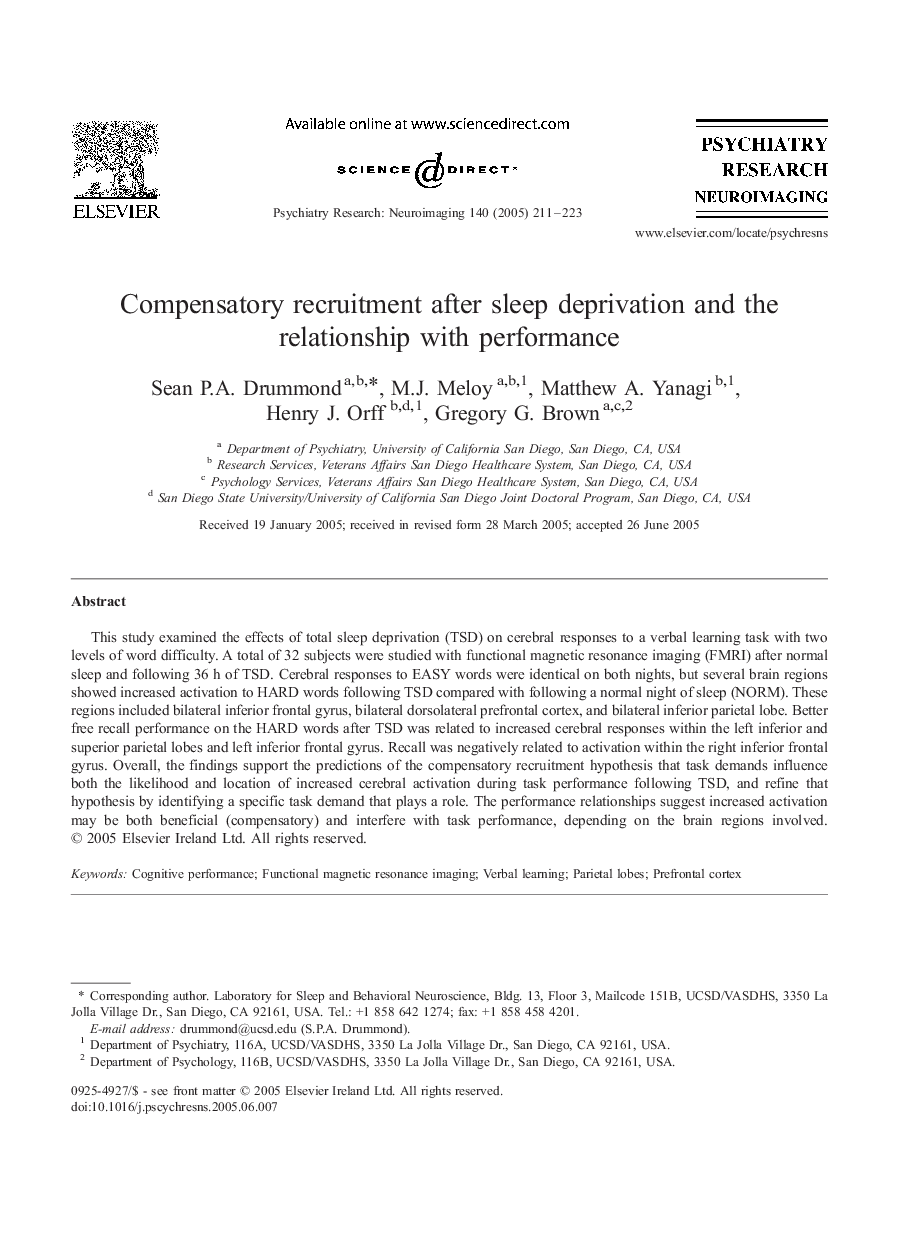| کد مقاله | کد نشریه | سال انتشار | مقاله انگلیسی | نسخه تمام متن |
|---|---|---|---|---|
| 9646154 | 547023 | 2005 | 13 صفحه PDF | دانلود رایگان |
عنوان انگلیسی مقاله ISI
Compensatory recruitment after sleep deprivation and the relationship with performance
دانلود مقاله + سفارش ترجمه
دانلود مقاله ISI انگلیسی
رایگان برای ایرانیان
کلمات کلیدی
موضوعات مرتبط
علوم زیستی و بیوفناوری
علم عصب شناسی
روانپزشکی بیولوژیکی
پیش نمایش صفحه اول مقاله

چکیده انگلیسی
This study examined the effects of total sleep deprivation (TSD) on cerebral responses to a verbal learning task with two levels of word difficulty. A total of 32 subjects were studied with functional magnetic resonance imaging (FMRI) after normal sleep and following 36 h of TSD. Cerebral responses to EASY words were identical on both nights, but several brain regions showed increased activation to HARD words following TSD compared with following a normal night of sleep (NORM). These regions included bilateral inferior frontal gyrus, bilateral dorsolateral prefrontal cortex, and bilateral inferior parietal lobe. Better free recall performance on the HARD words after TSD was related to increased cerebral responses within the left inferior and superior parietal lobes and left inferior frontal gyrus. Recall was negatively related to activation within the right inferior frontal gyrus. Overall, the findings support the predictions of the compensatory recruitment hypothesis that task demands influence both the likelihood and location of increased cerebral activation during task performance following TSD, and refine that hypothesis by identifying a specific task demand that plays a role. The performance relationships suggest increased activation may be both beneficial (compensatory) and interfere with task performance, depending on the brain regions involved.
ناشر
Database: Elsevier - ScienceDirect (ساینس دایرکت)
Journal: Psychiatry Research: Neuroimaging - Volume 140, Issue 3, 30 December 2005, Pages 211-223
Journal: Psychiatry Research: Neuroimaging - Volume 140, Issue 3, 30 December 2005, Pages 211-223
نویسندگان
Sean P.A. Drummond, M.J. Meloy, Matthew A. Yanagi, Henry J. Orff, Gregory G. Brown,